Who doesn’t love to have a day off? I personally cherish not having to go to work during public holidays. And if, through some miraculous coincidence, a holiday precedes or succeeds a weekend, the joy is increased manifold.
Then I think about the situation our country is in, not security-wise but strictly in economic terms. We aren’t faring well. We rank as an under-developed economy that is severely indebted to the IMF and World Bank for periodical sustenance. Consequently, we are subjected to more taxes since the state has to prove its credibility to commission further loans in the future. This menacing cycle repeats itself again, and again, and again, until our basic living standards are sucked out and the fine line between being “low class” and “in poverty” begins to disappear.
According to available information, this year Pakistan will have 15 public holidays (nationally). Add these 15 days to 52 Saturdays and Sundays each this year and we have a total of (15+52+52=) 119 days off. Statistically, citizens in Pakistan will have only worked for 246 days. I’ve included Saturdays since my focus is on public servants and multinational corporations. If we include Saturdays as work days, we still only work for 267 days. This does not take into account for the many casual, sick and annual leaves we have at our disposal, to be availed whenever we want. Suppose “X” is a public servant will work for 246 days this year. In a moderate scenario, let us assume that X uses only 5 casual leaves + 10 annual leaves in 2015. Thus in total, he will have worked for only (246-15=) 231 days. Going further, let us also include incidental holidays such as when natural calamities occur or if some strikes take place giving inaccessibility to transport and work resources.
A 2014 research revealed that employees in India, along with Colombia, enjoy the most number of public holidays worldwide (18 days). One author reported how too many holidays in a row are not in India’s interests. Others reason that the more holidays there are, the more festivities and celebrations result in sales. If we talk about Pakistan’s economic progress, our GDP seems to be on a rising trajectory at 4% during the past five years. However, if this growth is viewed from a South Asian state perspective, the situation is dismal. Other South Asian countries have reported 7% increase during the same duration.
This article is not discussing the merits/demerits of holidays. They are a necessity and a basic work right around the world. Public servants and private employees also have the right to go on casual or annual leaves for recreation with their families. The point I am trying to make is that we should try to reduce our thirst to take days off and work harder to put the country on its feet. Consider this: Supposing government officials (bureaucracy, political government, armed forces, etc) work 5 days a week without any other entitled leaves, they still have 119 days off i.e. 171,360 hours down the drain. Or if I may put this into an interesting perspective: since time is relative and people in US, Australia, Canada etc work during the day which is night for us, it means we are approximately 170,000 hours behind the developing world in terms of progress. Now I know it sounds like too much of a generalized overstatement, but we have to bear in mind that Pakistan, unlike the West and even neighboring India or China, has a very weak economy. The more hours we take off collectively as citizens of Pakistan during public holidays, the more we are left behind in the comity of nations.
Consider a commentary by analyst Wali Zahid who brought to light Pakistan’s standing on the Future Orientation Index of the world’s top 45 economies. Readers will be (dis)pleased to know that according to a 2014 report by the Geert-Hofstede Centre, Pakistan was in last position with zero Long Term Orientation (LTO). Let me repeat, “ZERO”! Let me further rub salt on your wounds by saying that less heard of countries (at least on the regular geopolitical stage) like Vietnam and even Kazakhstan had a better outlook than Pakistan!
Not The ‘Boo-Hoos’ Again
Yes, we are affected by terrorism. Yes, we seem to have a corrupt or at least a confirmed inconsiderate national government. But our opposition parties and own individual attitudes are no better either. Our literacy rate is still shameful, our tolerance seems to be fading day by day and at one point, the only index we might top is perhaps a ‘National Frustration Index’.
Every country has its problems. Lots of them. Our neighbor which is fond of chest-thumping and proclaiming itself as a “Rising Power” also faces a barrage of domestic issues on sanitation, hygiene and social harmony. But despite all this, and miraculously even despite regular inter-communal strife, India’s economic situation has positioned it in such a way that the US wants to align interests with it in the Central-South Asian regions to rein in what they perceive as a ‘too ambitious’ China. In fact, the very reason why India was twice accorded special treatment as regards nuclear cooperation, was its geopolitical and geo-economic aspirations; New Delhi wants to establish a strong foothold in the Central Asian Republics and link it with the Indian Ocean and the Pacific, something will directly matches with American interests). Pakistan, on the other hand, has no such economic outlook.
Fortunately, Pakistan need not worry about formulating a similar strategy. The Chinese, who have the world’s most powerful economic potential, has promised billions to its ‘Iron-Weather Friend’ (Pakistan) under the China-Pakistan Economic Corridor (CPEC) which could significantly transform Pakistan’s current standing.
Let us pause here on the issue of terrorism. Operation Zarb-e-Azab is underway and presently, as well as in the future, Pakistan will need to enhance the budget for its national defence. To do so, Pakistan cannot continue taking loans from international bodies. The interest rate simply drains our economy and the common individual much further.
Ironically, when citizens become poorer, they have to undertake more than one jobs. And at the root of this tiring compulsion is our obsession with holidays. We’d rather partake in short-term leisure than think for our long-term benefit. I’m not talking about doing overtime. Not at all. The point is to work every other day and only take the weekend off (whether Saturdays, Sundays or both). Public holidays are indeed very symbolic and “romantic” as some overly-emotional jingoists label it.
We have to honestly ask ourselves, how far are we behind the developed world? One report said our neighbor India was far ahead of us in economic and military might. An excerpt from notes:
“Since 1993, India’s growth rate has been higher than Pakistan’s in every single year, and in four years in the last ten, India’s growth rate has been double of Pakistan’s. This is not all. If we look at all the seven SAARC countries, today even lowly Bangladesh and Nepal perform far better than Pakistan, and this is especially so if we compare the 1980s.”
In August 2015, noted Indonesian economist Sri Mulyani Indrawati noted in her speech:
“For the past two decades, Pakistan’s growth rate has been only half that of India and China. If current trends continue, by 2050, India’s economy will be 40 times larger than Pakistan’s, and China’s economy a 100 times.”
She continued:
“Pakistan’s growing middle class – an estimated 40 million people – represents a powerful engine for change, demanding both improved services and access to opportunities. They are also key to driving growth and creating jobs.”
Most importantly, she observed:
“Pakistan needs to ensure that its people can participate in the economy and benefit from economic gains. And it needs to integrate itself more, globally and regionally. To achieve both, Pakistan must take bold steps…”
In my personal view, the bold steps include shortening of public holidays down to the most necessary ones. Ms Indrawati concluded her speech in the following words, which should be a wake up call for a lazy, slumbering nation like us:
“With determination Pakistan can take full advantage of its location, build dynamism into its economy, unleash the power of youth and women, and defuse the demographic time bomb.
As Quaid-i-Azam Mohammad Ali Jinnah said: “With faith, discipline, and selfless devotion to duty, there is nothing worthwhile that you cannot achieve.”
I think we can all still agree with him. Thank you.”
She is spot on. ‘Selfless devotion’, which the Quaid emphasized, can only come once we are serious in bringing about progress. The government can only do so much as it wants to and can, ultimately we will have to discard our lazy attitude toward work.
Whether one is a shopkeeper, wholesaler, retailer, private employee, factory worker, government officer, public servant, bureaucrat, diplomat, etc. What matters is that we try to catch up with the world before it races farther ahead with its speed increasing every year.
Even commercial bodies have started realizing the negative effects of having too many holidays. Mr Yaqoob Karim, President Lahore Chamber of Commerce and Industry (LCCI) had warned In July 2015 about the dangers which too many holidays can have on the economy. He said that a 5-day closure during Eid-ul-Fitr would cost the country at least $365 million. Supposing one day on an average costs Pakistan $73 million, it is no surprise that we lose out more than a billion dollars when all 15 public holidays are observed.
If we’re really so much of Allama Dr Muhammad Iqbal’s admirers, we can do well by grasping the depth of his literal but mostly metaphorical poetry which encourages introspection, focus and hard work. After all, “Bay Mehnat-e-Payham Koi Jauhar Nahin Khulta” (Without resort to incessant strife no skill or art completion gains).
You may feel free to criticize me for what I’m about to say, but in true letter and spirit of being followers of our Quaid too, we should go to work on December 25 instead of sitting and home and doing possibly everything except remembering him. The most some of us would do is tweet or post his quotes and that’s how we satisfy our selves. I find that highly bemusing.

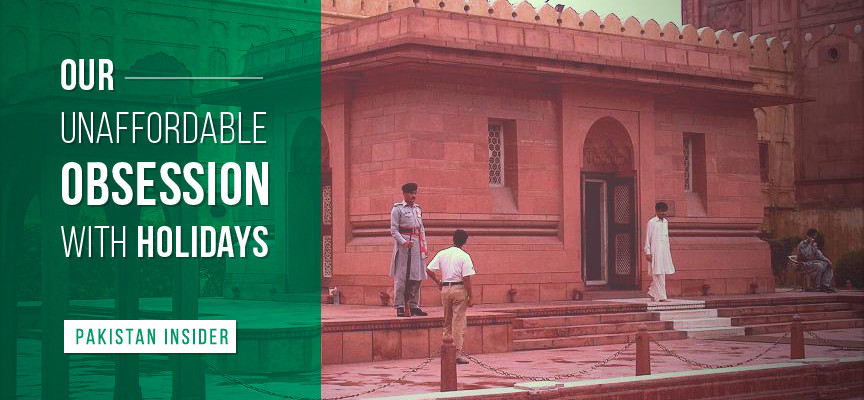
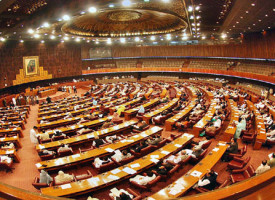
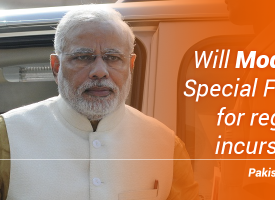

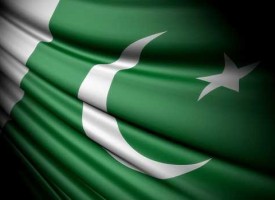
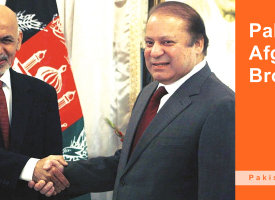

No comments!
There are no comments yet, but you can be first to comment this article.